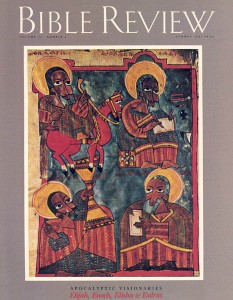Solomon—The King Without a Prophet
The fact is rarely noted. King Solomon didn’t have a prophet to bug him, to trouble him, to nag him. The contrast with other kings of Israel is striking.
Saul was the first king of Israel (c. 1020–1000 B.C.). He was virtually controlled by the prophet Samuel. From the time of Saul’s anointment to the day of his death, the personality of Samuel dominated him. It was, of course, Samuel to whom the people had turned for a king in the first place; the choice of Saul was entirely Samuel’s. Every action of Saul from that day forward was subject to Samuel’s critical review.
When Samuel failed to arrive seven days after the appointed time for a sacrifice at Gilgal and the people began to scatter, Saul made the seemingly logical decision to perform the burnt-offering without Samuel, surely a minor exercise of royal authority. Immediately afterward, however, Samuel arrived and demanded of Saul: “What have you done?” (1 Samuel 13:8).
Saul plausibly explains why he offered the sacrifice without Samuel, but Samuel retorts: “You acted foolishly in not keeping the commandments that the Lord your God laid upon you! Otherwise the Lord would have established your dynasty over Israel forever. But now your dynasty will not endure. The Lord will seek out a man after His own heart, and the Lord will appoint him ruler over His people, because you not abide by what the Lord had commanded you” (1 Samuel 13:13–14).
Already a library member? Log in here.
Institution user? Log in with your IP address.

